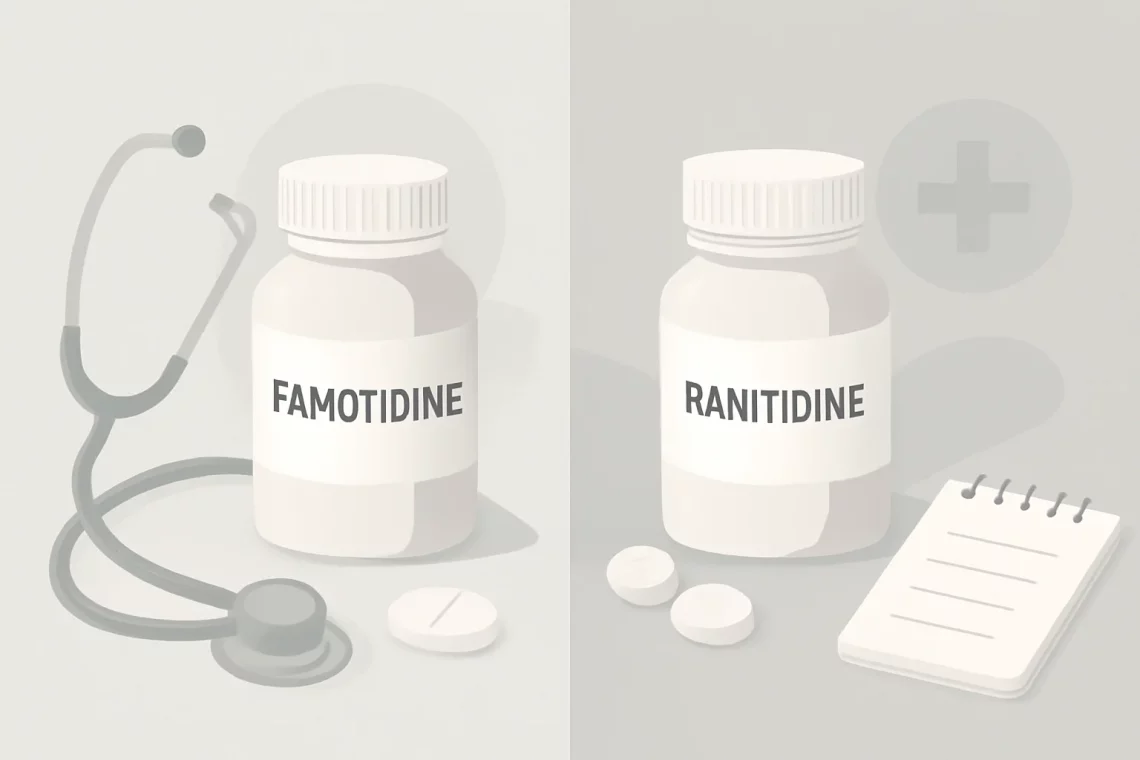-
Ranitidine vs Famotidine: Which Antacid is Right for You?
Ranitidine and famotidine are two widely used medications in the realm of gastrointestinal health, primarily for their ability to reduce stomach acid production. As prevalent as heartburn and gastroesophageal reflux disease (GERD) are in modern society, the need for effective treatment options has led to the popularity of these drugs. Understanding the nuances between ranitidine and famotidine, their mechanisms of action, potential side effects, and other factors can be crucial for individuals seeking relief from acid-related disorders. Both ranitidine and famotidine belong to a class of medications known as histamine H2-receptor antagonists, which work by blocking histamine receptors in the stomach lining, thus reducing acid secretion. Despite their similar purpose,…
-
Esomeprazole vs Omeprazole: Which is Right for You?
Esomeprazole and omeprazole are both medications that belong to a class known as proton pump inhibitors (PPIs). These drugs are primarily used to treat conditions related to excessive stomach acid, such as gastroesophageal reflux disease (GERD), peptic ulcers, and Zollinger-Ellison syndrome. With the increasing prevalence of acid-related disorders, the importance of understanding these medications has grown significantly. Esomeprazole, often marketed under the brand name Nexium, is a specific isomer of omeprazole, which means that it has a slightly different chemical structure and may offer distinct pharmacological properties. Both medications work by blocking the proton pump in the stomach lining, effectively reducing the production of gastric acid. As a result, they…
-
Famotidine vs Ranitidine: Which Antacid is Right for You?
Famotidine and ranitidine are two medications commonly used to treat conditions related to excess stomach acid, such as gastroesophageal reflux disease (GERD), peptic ulcers, and gastritis. Both belong to a class of drugs known as H2 blockers, which work by inhibiting the action of histamine on the stomach’s H2 receptors. This action ultimately decreases the amount of acid produced by the stomach. Understanding the differences and similarities between these two medications can be crucial for patients dealing with acid-related disorders. While both famotidine and ranitidine serve similar purposes, they have distinct properties, side effects, and usage guidelines. The choice between the two might depend on various factors, including individual health…
-
Exploring the Benefits and Uses of First Omeprazole for Heartburn Relief
Heartburn is a common ailment that affects millions of people around the world. Characterized by a burning sensation in the chest, heartburn can be triggered by various factors, including diet, lifestyle choices, and underlying medical conditions. For many, the discomfort associated with heartburn can be disruptive, leading to sleepless nights and an overall decline in quality of life. As individuals seek to manage their symptoms, various treatment options are available, ranging from lifestyle changes to over-the-counter medications. Among the many remedies, Omeprazole has gained significant attention as an effective solution for heartburn relief. This medication belongs to a class of drugs known as proton pump inhibitors (PPIs), which work by…















